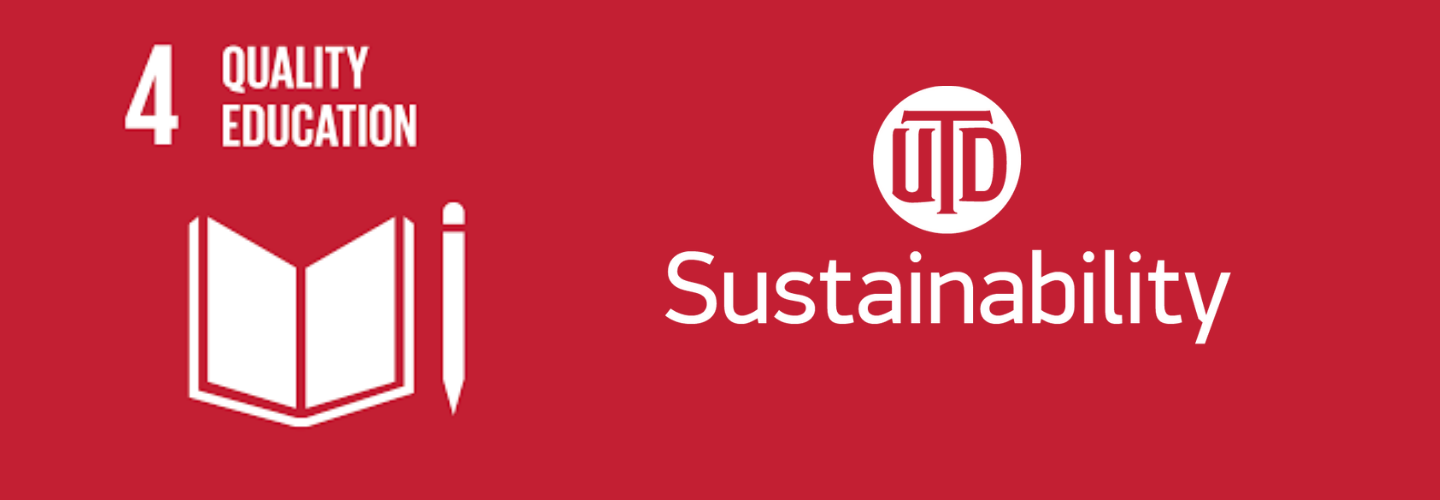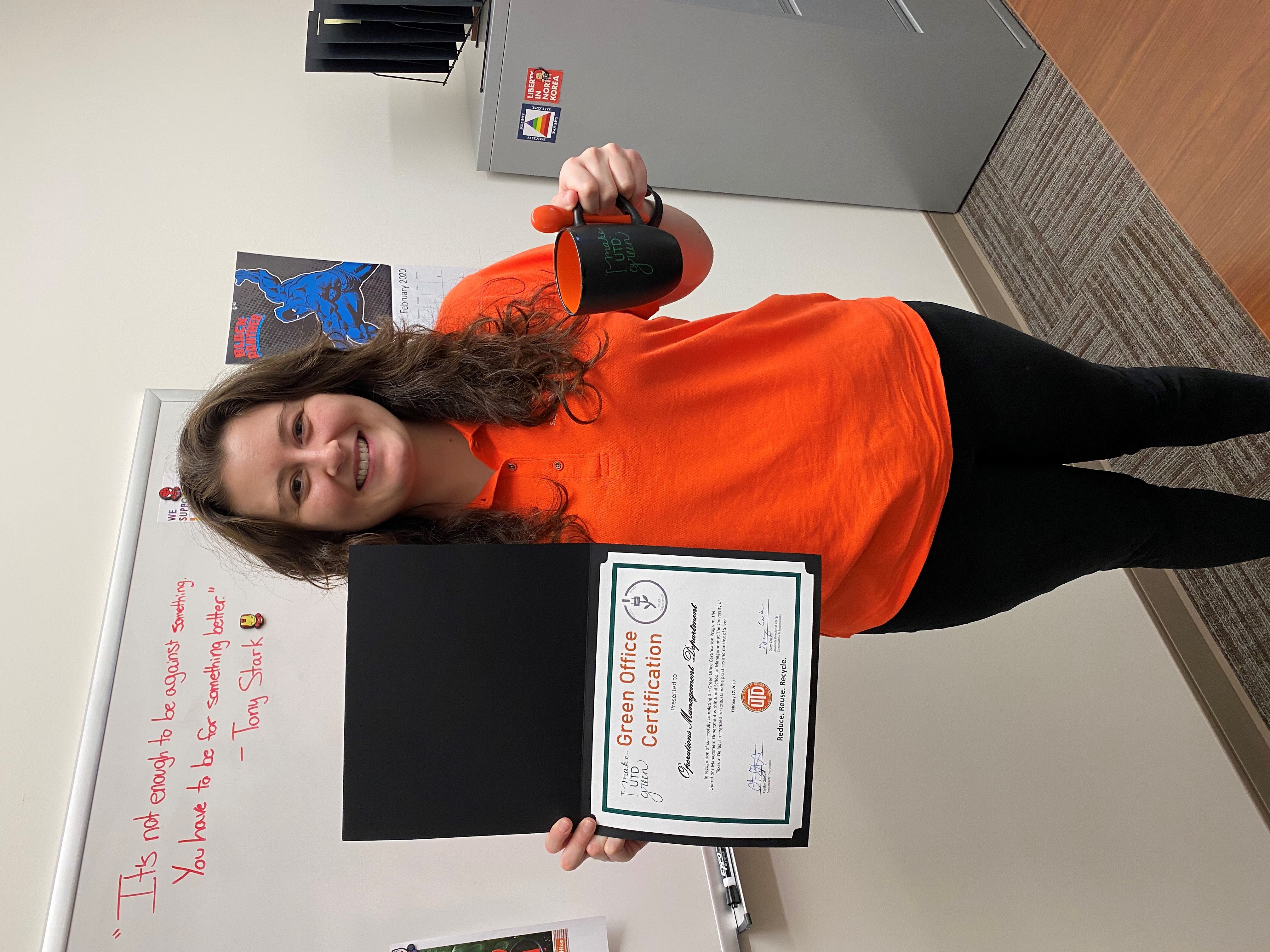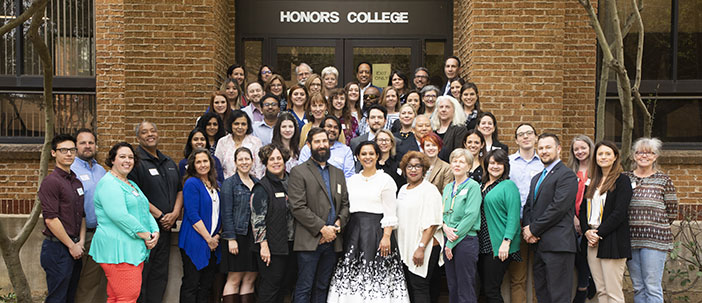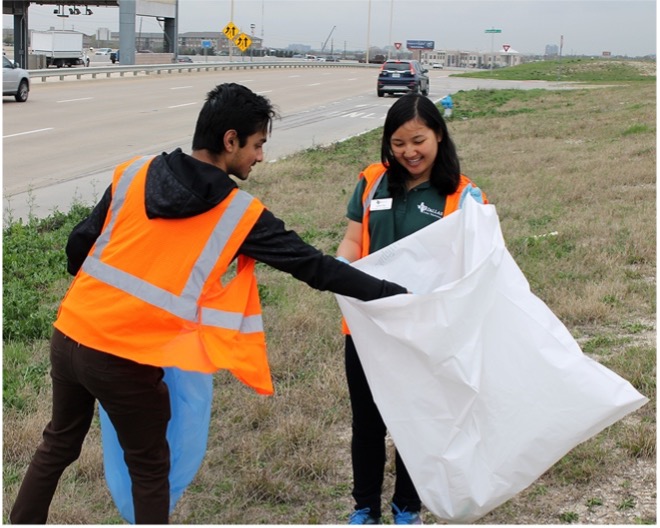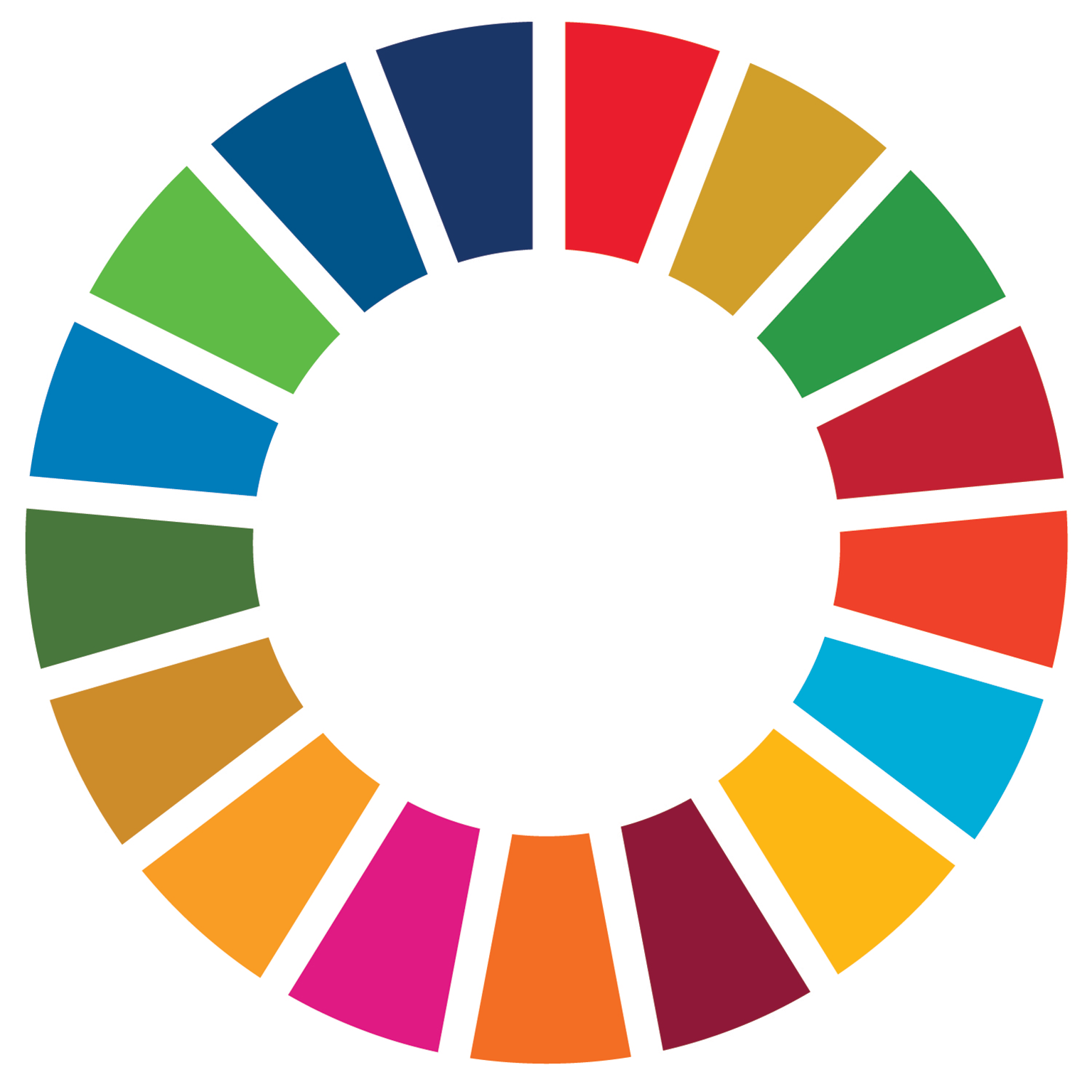Ensure inclusive and equitable quality education and promote
lifelong learning opportunities for all.
Quality Education Globally
The ability to obtain a quality and equitable education can set one up to achieve
many of the other Sustainable Development Goals. Education can reduce poverty, improve
the likelihood someone can obtain Decent Work, and increase the amount of people concerned
about combatting climate change. Unfortunately, across the world, education is not
accessible to all.
Sustainable Development Goal 4 reaches across all aspects of one’s education,
from preschool to tertiary education. It includes reducing discrimination in education,
increasing adult literacy levels, and focusing specifically on education for sustainable
development. Although the United States is ahead of much of the world in providing an
education to all citizens, our system remains one built on inequality.
Quality Education Locally
Dallas is an educational hub, home to some of the best schools in Texas.
According to a 2023 Niche rating,
DFW [Dallas / Fort Worth]
school districts accounted for seven of Texas’ top ten best school districts.
The Dallas metropolitan area is also home to over 30 colleges.
Founded in 1969 by the founders of Texas Instruments,
UT Dallas was built on an entrepreneurial spirit. The University had an initial
goal of attracting bright minds to the metroplex to work at the company. Since then,
UT Dallas has grown as a renowned research university of the South-Central United
States. With 31,570 students currently enrolled and a growing network
of 132,000 alumni, UT Dallas brings Quality Education
to many.
Highlights
Comet Scholars Program
SDG 1: No Poverty
SDG 10: Reduced Inequalities
Students in the Comet Scholars Program
Introduced in 2010-2011, the Comet Scholars Program works to increase the
representation of underrepresented groups in the student population at UT Dallas.
Students that demonstrate financial need and have a history of academic excellence can
qualify for this $5,000 scholarship to assist them in paying for tuition, housing, or
other University costs.
The Office of Diversity, Equity, and Inclusion also offers a variety of other programs to effectively
prepare students for UT Dallas, including College 101 Workshops and the G-Force
Mentor Program. Though these programs, UT Dallas strives to make Quality Education
accessible to all.
Green Office
SDG 12: Responsible Consumption and Production
SDG 13: Climate Action
A Green Office participant holding up their certificate and
“I Make UTD Green” mug
Introduced by the Office of Sustainability, the Green Office program is a fun, user-friendly, and
engaging tool to help assess how “green” we are operating on a department,
office, and individual level. Offices can rank as platinum, gold, silver, or bronze
based on the sustainable practices they have implemented by the department. Certified
Green Offices also receive regular newsletters, which help provide education to improve
campus sustainability and help to build a culture of stewardship on campus. The contact
listed on the Green Office Certification application will also be designated as a
Sustainability Ambassador, or the point of contact between the Office of Sustainability
and the certified office. The ambassador will share sustainability news, information,
and education material with their office and other employees on-campus. Each ambassador
attends at least one training provided by The Office of Sustainability per academic year.
The focus of the training is to learn more about the Green Office Certification Program,
how to effectively educate others on how to be more sustainable in the workplace, and
to share best practices in raising awareness for sustainability programs. Since its
introduction in 2018, over 14 campus offices have been certified as Green Offices.
This program prepares others to continue sustainability education outside of our office.
UN Regional Centre for Expertise
SDG 3: Good Health and Well-Being
SDG 11: Sustainable Cities and Communities
SDG 17: Partnerships for the Goals
Members of the North Texas
RCE [Regional Centre for Expertise]
The North Texas Regional Centre for Expertise
was founded in 2018 with the partnership of the University of Texas at Dallas
and the University of Texas at Arlington. The
RCE [Regional Centre for Expertise]
is a network of multidisciplinary stakeholders, including higher education institutions,
businesses, nonprofits, community associations, and local, regional, state and federal
government agencies. The
RCE [Regional Centre for Expertise]
works to promote sustainable development through these partnerships and through education.
In order to center our work through the
RCE [Regional Centre for Expertise] ,
the RCE has identified 5 main
SDG [Sustainable Development Goal] s
as priorities for the growing North Texas region:
Zero Hunger (SDG 2 [Sustainable Development Goal 2] ),
Quality Education (SDG 4 [Sustainable Development Goal 4] ),
Industry Innovation and Infrastructure (SDG 9 [Sustainable Development Goal 9] ),
Sustainable Cities and Communities (SDG 11 [Sustainable Development Goal 11] ),
and Climate Action (SDG 13 [Sustainable Development Goal 13] ).
Most recently, the RCE held its first in-person Annual Summit in fall 2022 to educate attendees
about sustainability work in the area and facilitate action and collaboration. In educating
the greater community, UTD’s partnership in the Regional Centre for Expertise is
essential in extending our reach.
Sustainability Literacy Assessment
SDG 13: Climate Action
SDG 17: Partnerships for the Goals
UTD students participating in a Campus Cleanup program
The Office of Sustainability administers a Sustainability Literacy Survey every
three years in line with our annual
AASHE [Association for the Advancement of Sustainability in Higher Education]
STARS [Sustainability Tracking, Assessment & Rating System]
report. Sustainability Literacy surveys from other institutions were referenced to assist
with developing questions, and new questions were developed to assess campus-specific
sustainability knowledge. Using the data collected through this literacy assessment,
the Office of Sustainability has worked to improve programming and increase the reach
of our office across campus.
Goals / Future Work
- Improve the Comets to the Core program to be more engaging for students
- Increase engagement in the Green Office program and other forms of Sustainable
Development Education for employees
- Involve UTD students more heavily in work of the UN Regional Centre for Expertise
- Introduce more courses focused on sustainability education
Learn More
Compliance with Texas Senate Bill 17
The information on this page predates the signing into law of
Texas Senate Bill 17
(SB17Senate Bill 17),
and as such, should be considered an obsolete historical document
which will either be changed or purged from this site in a future iteration,
following the guidance of The University of Texas System.


